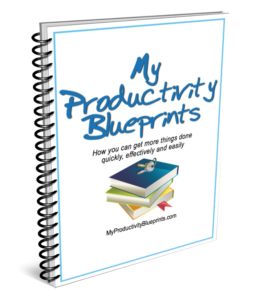Starting something new, like a new year, is usually exciting. But this year, after two challenging years, I’m hearing lots of people who are just exhausted. Maybe you feel a little that way too…
 If that’s you that’s OK. It’s also important that you be kind to yourself.
If that’s you that’s OK. It’s also important that you be kind to yourself.
Many people tend to be a bit too hard on themselves when it comes to their progress, seemingly for no valid reason. They like to hold themselves to such high standards for no reason other than to try to push themselves harder. But in reality, that might be detracting from your overall experience.
It’s as important to be happy when you make progress as it is to celebrate when you finally complete something.
If you’re not able to be happy when you make progress, you’re going to have a hard time motivating yourself to keep on going, leading you to burn out or give up altogether before you achieve your goals.
Getting excited is a fantastic motivator in so many ways. It can cheer you up, make you want to do more, and keep you going by putting you in a good mood. You’ll often do your best work when you’re happy, and lesser quality work when you’re neutral or upset.
For this reason, you need to be excited when you make progress towards success, even if you might typically think it’s not a big deal. For whatever reason, people don’t like to get excited about small things.
They think it might make them look like amateurs to be so delighted over such a small milestone, but who cares? The only person you need to compare yourself to is you. People who don’t like celebrating small victories are usually the same ones who have been sitting in a stagnant place for a long time.
Anyone who’s successful in a field would understand the excitement that comes with doing something small, but well. For example, if your dream was to become a novelist one day, you might feel really happy and proud of yourself if you were to write a page or two that you were happy with.
For some people, they might look at that and think it’s meaningless, because some authors can write pages upon pages per day. However, just being able to appreciate little bits of progress like that can make all the difference in the long run.
Think about the difference between being excited about small progress and just daydreaming.
On one hand, you’re making tangible, real steps toward a goal that you want to achieve in order to become successful. On the other hand, the daydreamer is just sitting around not making any progress aside from being hopeful.
Be happy that you’re able to take action and actually accomplish some small step towards your goal, no matter how insignificant it might seem to be. There is joy in making progress.
In the real world, every little thing you do can make a big difference.
Remember, You can do this! And you don’t have to do it on your own. When you are ready, contact me for details of our coaching programs. I’m here to help!
If you want to do it on your own use this to plan out your best year yet https://kmginfo.link/bestyear


 Do your goals seem to big? Sometimes the biggest obstacle we face in moving forward after a challenge, crisis or major change has occurred in our life, is our own sense of overwhelm. It’s scary to wonder where to go from here or how to dig ourselves out of a tough situation. It often seems easier to do nothing or to wallow in self-pity.
Do your goals seem to big? Sometimes the biggest obstacle we face in moving forward after a challenge, crisis or major change has occurred in our life, is our own sense of overwhelm. It’s scary to wonder where to go from here or how to dig ourselves out of a tough situation. It often seems easier to do nothing or to wallow in self-pity.


 Are you ready to take your business to the next level and watch some explosive growth unfold over the coming months? Great.
Are you ready to take your business to the next level and watch some explosive growth unfold over the coming months? Great.




 The process of designing, launching and running a new business, whether it is online or offline, requires a particular mindset and special skills to achieve success.
The process of designing, launching and running a new business, whether it is online or offline, requires a particular mindset and special skills to achieve success.







